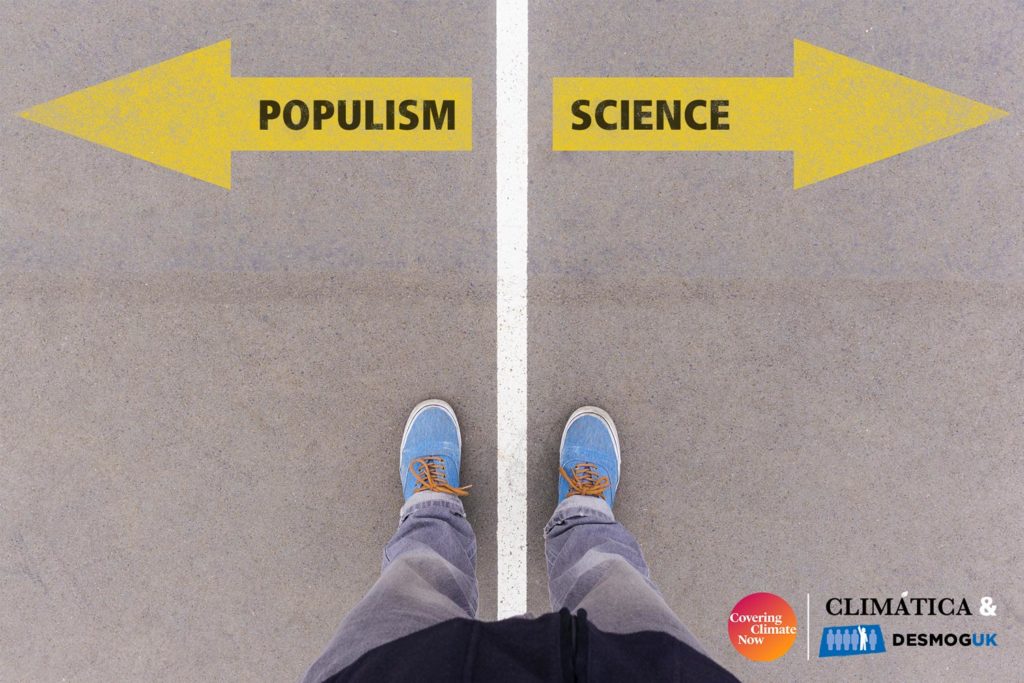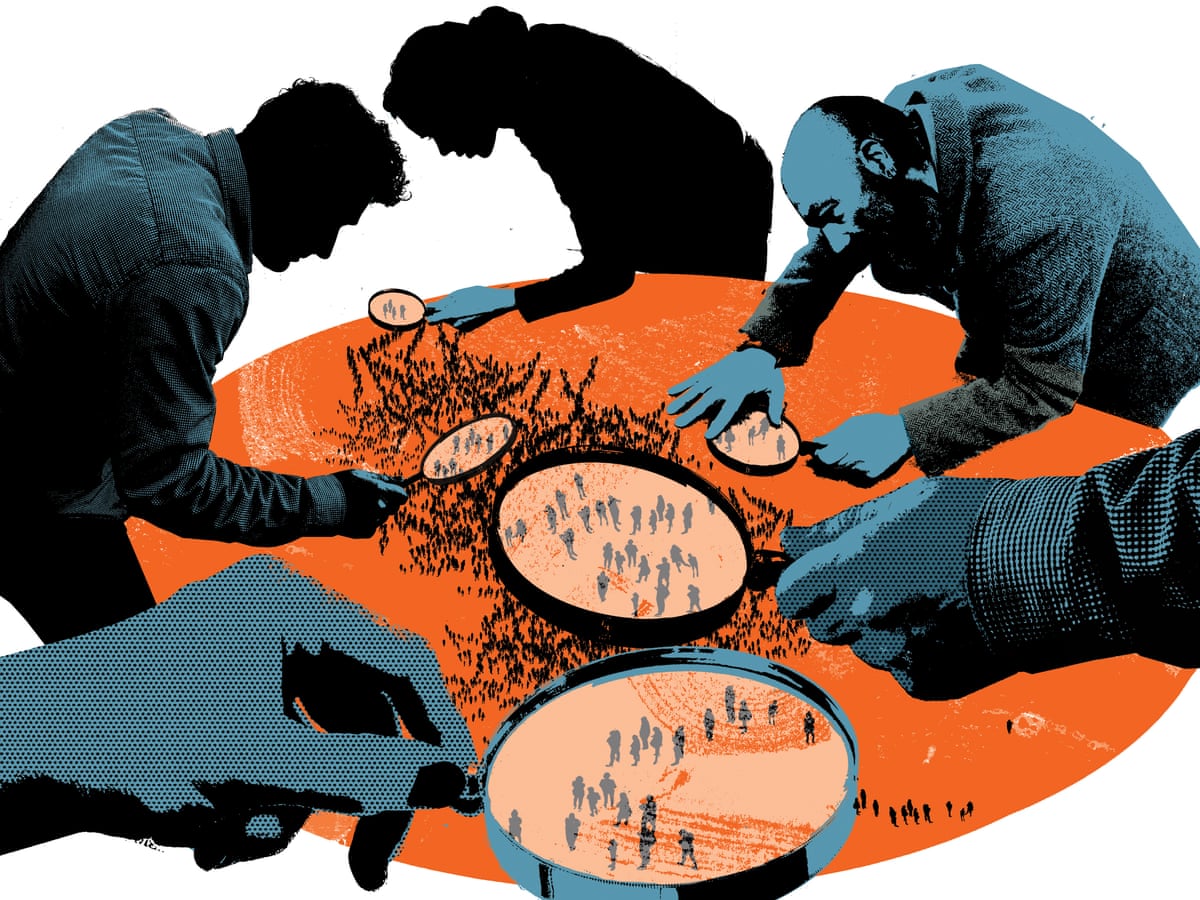Rarely science sparked as much hope and heated controversy as in recent months. The debate is important on its progress depends on the neutralization of a disease which has cloistered in it half of humanity and on its advice and forecasts depends on our right to move, to meet, and to function.
However, many commentators brandish the threat of “mistrust” that undermines the authority of science, and even of Truth, in our democracies.
However, the grid which tends to impose itself consists of assimilating this (real) phenomenon of questioning another political phenomenon: populism. The contemporary political divide is then reduced to a binary opposition between reason and populism, which ends up disqualifying any criticism of scientific and political institutions.

Distrust of science and populist deviance: a problematic assimilation
It is a widely disseminated debate, with its polls, its statistical studies, its indices, and its media outlets: the contemporary democracies are sick of the irrational adherence of a growing number of citizens to a set of fake-news, untruths and conspiracy theories (for example, vaccines are bad for your health, the theory of evolution is a lie, global warming will not happen).
Without ever being analyzed whether this is a disavowal of theories, protocols, scientists, research institutions, technical applications of science, or its political uses. Vagueness in the description of the phenomenon which allows this mistrust to be systematically reduced to a single phenomenon: populism, designated jumbled up as the cause and effect of the reign of error and lies.
Analyzing the legitimate causes of criticism of science
If the ideological dimension of this cleavage between rationalism and populism appears clearly, it remains that it points at the origin to a very real phenomenon.
There is indeed a set of untruths (lies or errors) with deleterious effects for humanity: climate-skepticism, negations, and conspiracies of all kinds. But there is a very urgent need to analyze the real causes, rather than referring them to the brain dysfunction of the imbecile masses: one cannot defend democracy by being anti-democratic.
Among these causes is first a political cause: the process of “scientification” of politics in largely technical democracies. The organization of liberal capitalism in fact largely subordinates collective decisions to mathematical economic models regularly presented by a cohort of “experts” close to power as eternal truths.
However, presenting political choices as scientific choices, rhetoric widely used during the management of the COVID-19 (the doctrine, said Edouard Philippe, is not political, it is scientific), exposes science to skepticism as soon as these choices are made.
Another cause or rather a more sociological nature can explain the lack of confidence in science. As all the history and sociology of science have revealed: no science is neutral in the sense that it is the production of an observer without quality and without determination. Science is produced by scientists, and if scientists all belong to the same social class or group, what it produces will necessarily be influenced. 
Thus, the fact that for centuries scientists were men, may explain the abysmal delay in research on certain diseases, such as endometriosis, which only affect women.
If today women are gradually gaining (and with difficulty as the scientific institution is struggling to open up and renew itself), the same is not true for the working classes, or the marginalized, because of the length and the precariousness of the path leading to a research career (inversely proportional to the amounts and the miserable quantity of grants offered).
Now, as long as science is made by the better-off classes, it will inevitably be to a certain extent made for the better-off. Objectivity and neutrality are the daughters of pluralism and equality.
Otherwise, as the philosopher, John Dewey wrote in 1927: “A class of experts is inevitably so cut off from common interests that it becomes a class with private interests and private knowledge, which in social affairs represents no knowledge at all.”
Finally, the economic organization of the scientific institution contributes greatly to the legitimate mistrust of its productions. The mode of production of knowledge thus in no way escapes the logic of profitability and accumulation of profit specific to our economic system in general. The increasingly private funding of scientific research thus removes investment choices and research priorities from democratic deliberation, even as science takes an increasing place in our lives, determining how we live, die, eat, we reproduce, we move.
The system of research, development, production, and distribution of health products, common goods, largely financed by public money, is thus, literally monopolized by the private sector thanks to the patent system.
In addition, the private sector is cutting research positions that are yet again largely publicly funded, and continue to pay billions in dividends to shareholders while refusing to relocate drug production for reasons of “cost and benefits”. How is it then possible to have confidence in such an undemocratic functioning?
Don’t just “restore” confidence in science, but make science trustworthy
These observations, far from leading to skepticism, should lead us to transform “mistrust” into criticism. In a democracy, any institution must base its authority on its legitimacy and not impose it on principle. Science is no exception to the rule.
However, to be legitimate, it must be able to be the subject of criticism, this is one of the fundamental principles of democratic legitimacy. It is therefore by an effective democratic critique of science, and not by the authoritarian imposition of its certainties, that one can hope to overcome untruths.
Such a critique must first consist in deciding collectively what is the perimeter of the authority of science: on what questions it is exercised and on which questions there are other regimes of truth and values?
The COVID-19 crisis has shown it: strictly scientific advice and forecasts are only one of the parameters, alongside the economic, social, cultural, even religious dimensions of any collective event. It is therefore for the democratic community to decide what is the proper place of science in the organization of the collective life.
For this, research orientations must be planned in a transparent manner and submitted to democratic deliberation. Such an organization must make it possible to reintroduce democratically, the question of the values to which science must be strictly subordinate, in order to serve emancipation and collective happiness and not the interests of a few.
In addition, all scientific productions must be considered as strictly accessible as common goods. Scientists, for their part, must be completely independent of all relations with industrial interests, in particular thanks to reinforced statutory and financial protection.
Finally, each area of application of science to life must be able to be the subject of a second opinion. If we want to empower science, we must give it checks and balances. For this, all studies on which political decisions are based must be made public.
The determining role of the second opinions requested or carried out by citizens in many political and social conflicts, from the ecological struggles through the fight against the AIDS epidemic, has shown to what extent the criticism of the science was a major democratic tool.
This citizen-science movement has also shown how mistaken the image of an ignorant public doomed to be. It finally invites us to a change of gaze in order to always remember that a fair political critique of science is thus a critique of its institutions: their funding, their transparency, their accessibility, their representatives, and their impact.
However, accounting for our present through the prism of opposition between rational and irrational forces constitutes a profound disqualification of the notion of criticism, which is nevertheless essential to democracy.
Because science is not just a matter of truth and falsehood, it is also, with all due respect to ultra-rationalists, a question of value, as Albert Camus recalled with his heartbreaking words in the aftermath of Hiroshima. One had to be very idealistic, he told us, or else unrepentant, to believe that there are sciences which float light above the violence and follies of the world.




